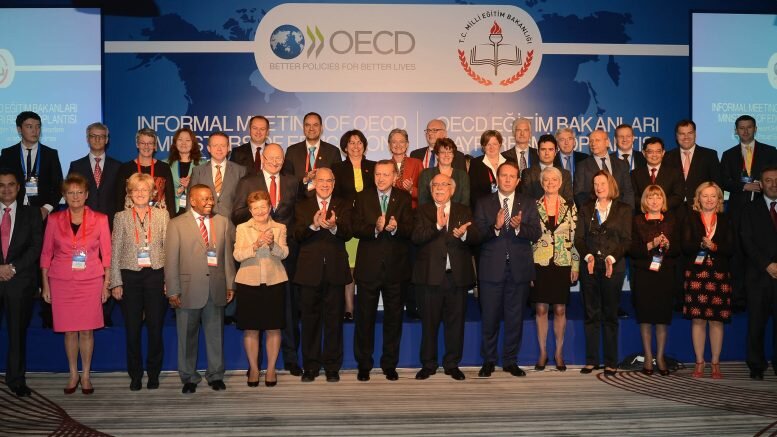USA goes solo and rejects joint OECD Declaration on Trade
The United States, with Donald Trump as president, has changed politics in a number of areas, and now it is the turn of the OECD.
As the only country, the United States will not endorse a final statement at the annual ministerial meeting in Paris on 7th to 8th June, saying the same thing about free trade that the OECD has always done.
Denmark leads this year’s ministerial meeting, and the Danish OECD Ambassador Klavs A. Holm is irritated by the American solo race.
Bad signal from the US
– It’s not a good sign that the United States leaves the free trade line that has been protected by the US since World War II, says Holm.
The OECD is the Western World Organization for Economic Integration and aims, inter alia, at promoting growth and social welfare. The sometimes dramatic negotiations at the OECD meeting’s endorsement this time ended with a text in which the 35 member states do not have a common stance on free trade.
– I do not recall that there has been an OECD text without full agreement on trade, says Holm.
About the OECD
The mission of the Organisation for Economic Co-operation and Development (OECD) is to promote policies that will improve the economic and social well-being of people around the world.
The OECD provides a forum in which governments can work together to share experiences and seek solutions to common problems. We work with governments to understand what drives economic, social and environmental change. We measure productivity and global flows of trade and investment. We analyse and compare data to predict future trends. We set international standards on a wide range of things, from agriculture and tax to the safety of chemicals.
We also look at issues that directly affect everyone’s daily life, like how much people pay in taxes and social security, and how much leisure time they can take. We compare how different countries’ school systems are readying their young people for modern life, and how different countries’ pension systems will look after their citizens in old age.
Drawing on facts and real-life experience, we recommend policies designed to improve the quality of people’s lives. We work with business, through the Business and Industry Advisory Committee to the OECD (BIAC), and with labour, through the Trade Union Advisory Committee (TUAC). We have active contacts as well with other civil society organisations. The common thread of our work is a shared commitment to market economies backed by democratic institutions and focused on the wellbeing of all citizens. Along the way, we also set out to make life harder for the terrorists, tax dodgers, crooked businessmen and others whose actions undermine a fair and open society.
© NTB Scanpix / OECD.org / Norway Today




